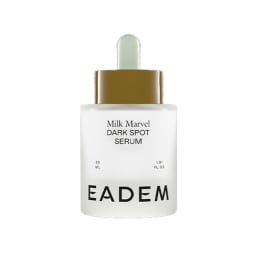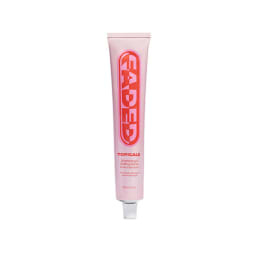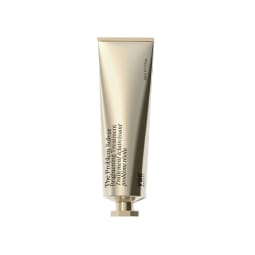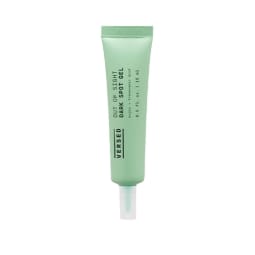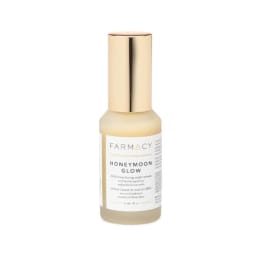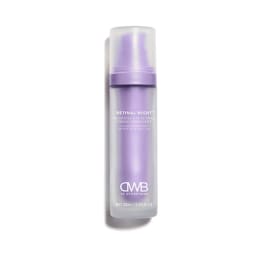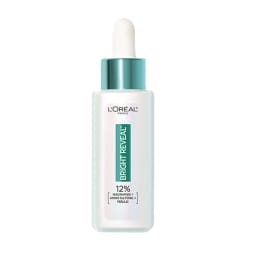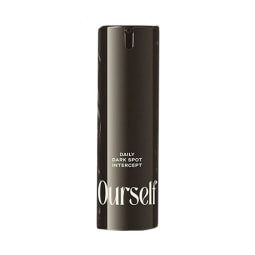Advertisement
The 16 All-Time Best Dark Spot Correctors, According To Beauty Pros


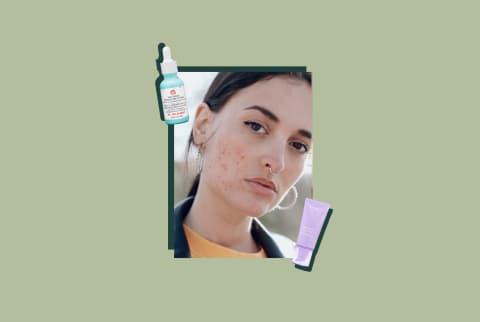
Best dark spot correctors
- Best serum (overall): Eadem Milk Marvel Dark Spot Serum ($68)
- Best for sensitive skin: Tata Harper Bio Barrier Serum ($146)
- Best for acne marks: Topicals Faded ($38)
- Best for sun & age spots: YSA Beauty The Problem Solver ($88)
- Best mask: Pillow Talk Derm Major Fade Flash Mask ($48)
- Best wash: Indie Lee Brightening Cleanser ($38)
- Best spot treatment: Versed Out Of Sight Dark Spot Gel ($17)
- Best face cream (day): Biossance Squalane + Vitamin C Rose Moisturizer ($56)
- Best face cream (night): Caudalie Vinoperfect Dark Spot Correcting Glycolic Night Cream ($69)
- Best sunscreen: OleHenriksen Banana Bright Mineral Sunscreen SPF 30 ($35)
- Best AHA: Farmacy Honeymoon Glow ($60)
- Best vitamin C: BeautyStat Universal C Skin Refiner Vitamin C Serum ($85)
- Best niacinamide: FAB Facial Radiance Niacinamide Dark Spot Serum ($42)
- Best retinol: DWB Retinal Night ($99)
- Best drugstore: L'Oreal Bright Revel ($31)
- Best splurge: Ourself Daily Dark Spot Intercept ($260)
It's one of the most ubiquitous skin concerns out there. It equally affects folks of all ages, genders, skin types, and tones. It can come as a result of sun, acne, injury, in-growns, internal inflammation, age, and a myriad of other triggers. It can take months, and sometimes even years, to treat. It can show up anywhere and all over, from the face to body. The appearance can be big to small, mild to severe.
I'm talking about dark spots. And if you've dealt with them, you know just how frustrating they can be.
"Dark spots are often the result of a grouping of cells within the skin that overproduce the pigment melanin," board-certified dermatologist and YouTube creator Andrea Suarez, M.D., FAAD, tells mindbodygreen about dark spots. Within the skin there are melanocytes, which are the cells responsible for producing pigment in the skin. When our skin is inflamed—be that from UV radiation, acne, hormones, or something else—it stimulates these melanocytes1 to create more pigment.
Treating them usually involves some combination of increasing skin cell turnover at the surface (to fade the appearance), fighting inflammation and free radicals through antioxidants (to ease the trigger), and addressing the overproduction of pigment (targeting the root cause).
The below products use these mechanisms, which is why they're so effective at addressing dark spots. Consider these the smartest and most sophisticated formulas out there—tested and vetted by us.
A quick note on sun protection:
The best dark spot correctors
Pros
- The delivery system only targets dark spots, so it won’t lighten skin all over – a concern for some dark spot correcting serums.
Cons
- Too much niacinamide can be irritating for some folks, so be sure you’re not using it elsewhere in your routine
Considerations:
Cruelty-freeVeganFragrance-freeIngredient highlights:
Licorice rootNiacinamideAlgaeVitamin CFruit enzymesThis is a product that skyrocketed to the top of “best of lists” across the internet, has earned countless glowing reviews, and (at one point) amassed a 3K waitlist. The people have spoken: This is an obsession-worthy dark spot corrector. The delivery system (called “Smart Melanin Technology” ensures that only the appropriate dosage is released into the skin only where it's needed, so as to not spur irritation (which can make dark spots worse) or affect the surrounding areas. The serum uses workhorse ingredients such as licorice root, niacinamide, algae, vitamin C, and fruit enzymes.
What our reviewers say:
This is an mbg beauty team favorite. Just take it from beauty editor Jamie Schneider, “It has the most deliciously creamy texture that feels like heaven on the skin. Every time my complexion looks a little dull or inflamed, I grab for Milk Marvel like it's a safety blanket. It's the skin care hero I consistently come back to in a pinch."
Or as assistant beauty editor Hannah Frye wrote, “The one-stop-shop for easing dark spots, melasma, post-acne spots, and overall reviving a dull complexion. In my experience, the formula is lightweight and so easy to layer with other products. As someone who loves a dewy glow, I'm as obsessed with the instant shine the serum gives my skin every morning. The second I apply it, my complexion goes from dull to dewy, almost like magic.”
Best for sensitive skin: Tata Harper SuperKind Bio Barrier Serum
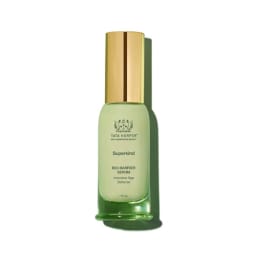
Pros
- Free of essential oils, which many folks find too irritating.
- Made with organic ingredients
Con
- Expensive
Considerations:
Cruelty-freeVeganFragrance-freeIngredient highlights:
Licorice rootAlgaeSugarleefPostbioticsEvening primrose oilFolks with sensitive skin have to walk a thin line with any sort of “treatment” product, such as dark spot correctors. Irritation only makes dark spots worse, and sensitive skin is triggered quite easily. This serum, first-and-foremost, works to soothe inflammation and restore the skin barrier—two things folks with sensitive skin and dark spots need. It also uses a special tri-algae complex and licorice root extract to specifically target pigmentation issues.
What our reviews say:
If all I used for the rest of my life was Tata Harper’s SuperKind collection, my skin would be very happy. The serum is smooth, silky, and has the most deliciously earthy natural scent (it has no added fragrance, but the natural ingredients inherently have a natural aroma). My skin just drinks it up, and leaves my complexion lifted and bright.
Advertisement
Pros
- Can help deal with acne and acne marks at the same time
Cons
- Some folks complain of the unpleasant smell
Considerations:
Cruelty-freeVeganFragrance-freeIngredient highlights:
Licorice rootNiacinamideJojoba oilCentella asiaticaKojic acidAzelaic acidTranexamic AcidAcne marks—or post inflammatory hyperpigmentation—are especially frustrating, no? First you have to deal with the blemish itself, then you’re left with its residual stain. This cult-favorite treatment uses several ingredients to help clear things up. Niacinamide helps balance sebum production and reduce breakouts. Centella asiatica soothes inflammation. Azelaic acid helps manage redness, acne, and dark spots. Finally, licorice root, kojic acid, and tranexamic acid are two brighteners that work to stop the overproduction of pigment triggered by inflammation.
Pros
- Can use it day or night without risk of photosensitivity
- Can be paired with retinol for more “anti-aging” benefits
Cons
- Higher price point
Considerations:
Cruelty-freeVeganFragrance-freeIngredient highlights:
Licorice rootNiacinamideTranexamic AcidPomegranate seed oilPeptidesFor those whose dark spots have started developing overtime due to sun exposure (up to 80% of visible signs of aging are due to UV damage, after all), look for something that can help reverse that damage. This cocktail uses a blend of licorice root and tranexamic acid to stop melanin production at the cellular level. It’s also infused with the antioxidant niacinamide to soothe skin, pomegranate seed oil to ease fine lines, and peptides for rejuvenation.
Advertisement
Pros
- A potent product at an affordable price point
Cons
- The dry down can be somewhat tacky
- Should wait 2-3 minutes to let it dry before you apply anything on top of it
Considerations:
Cruelty-freeVeganFragrance-freeIngredient highlights:
Licorice rootNiacinamideKojic acidTranexamic AcidMaybe you don’t need a full face serum. Maybe you’re just in the market for a spot treatment that can help target a few marks. Well this super concentrated gel works wonders at fading dark spots just where you need it. Made with four of the biggest names in brightening (tranexamic acid, kojic acid, niacinamide, licorice root extract) at potent doses, this is ideal for honing in on stubborn marks.
Best face cream (Day): Biossance Squalane + Vitamin C Rose Moisturizer
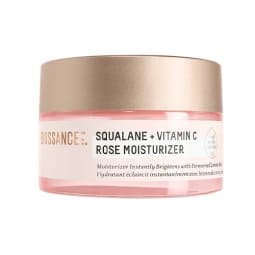
Pros
- A very subtle rose scent from the natural ingredients
- Lays well under makeup
Cons
- Leaves a shiny finish, in case you favor matte skin
Considerations:
Cruelty-freeVeganFragrance-freeIngredient highlights:
Vitamin CSqualaneFermented lemon peel extractRose extractThis silky face cream uses vitamin C, a holy grail ingredient that’s not only great for brightening but helps boost collagen production and fights free radicals. The base is the brand’s signature squalane, which is an excellent source of lipids to hydrate the skin.
What our reviewer says:
This cream makes me look dewy, dewy, dewy. (It’s one of my favorite face creams actually.) The rose-tinted formula really brings that splashy hydration and glow. Thanks to the vitamin C, I’m definitely seeing improvements in my overall tone. I’ve found that it pairs well with other products, too, so you can definitely use it with a more potent dark spot serum (like some of the above) for extra brightening capabilities.
Advertisement
Best face cream (night): Caudalie Vinoperfect Dark Spot Correcting Glycolic Night Cream

Pros
- Exfoliating and hydrating at the same time
Cons
- Glycolic acid can make you photosensitive, so don’t wear it during the day
Considerations:
Cruelty-freeVeganIngredient highlights:
Fruit enzymesGlycolic acidIf you want to wake up dewy and fresh, grab yourself a jar of this overnight dark spot correcting cream. It works through gentle, yet thorough, exfoliation. First up, it contains glycolic acid, an AHA that helps buff away pigmentation issues and refines texture. It also uses fruit enzymes for an extra exfoliation boost. Finally, it contains a patented botanical extract (called Vine Sap Viniferine) that helps soothe inflammation and helps prevent dark spot formation.
Best sunscreen: OleHenriksen Banana Bright Mineral Sunscreen SPF 30

Pros
- Peachy tone allows for more universal wearability
- Provides instant brightening with the banana powder pigment, as well as long-term brightening with antioxidants
Cons
- Only SPF 30 if you stick to 50 or higher
- Contains fragrance if you’re sensitive to scent
Considerations:
Cruelty-freeVeganIngredient highlights:
NiacinamideVitamin CZinc oxideThis luminous formula instantly brightens skin with “banana powder inspired pigments,” which basically just means that it provides a soft-focus glow that’s universally flattering. But it’s not just a superficial boost, it uses the power of niacinamide and ascorbic acid (vitamin C) to brighten tone, help fade dark spots, and protect the skin from further damage by neutralizing free radicals.
What our reviewer says:
I can’t say enough good things about this sunscreen. (It made my list of favorite natural sunscreens, too!) The texture is next-level smooth. It just envelops on the skin, providing a perfectly soft-focus finish. It’s ideal for both makeup-free days, as well as under foundation. I love the formula so much, I’d be tempted to wear it daily even if it didn’t give me sun protection.
Advertisement
Pros
- Contains an AHA blend at 10%, which is potent but not overly aggressive
Cons
- Uses honey so not vegan (if you follow a strict vegan lifestyle)
Considerations:
Cruelty-freeFragrance-freeIngredient highlights:
Glycolic acidLactic acidWillow bark extractHoneyAHAS and BHAs can help buffer away dark spots, encourage skin cell turnover, and help reduce blemishes. This makes them excellent additions to a routine that’s targeting pigmentation concerns. This serum uses an AHA blend that contains lactic, glycolic, and citrus acids—as well as willow bark extract, which is a natural BHA. The formula is chock-full of antioxidants and hydrators, too, to help ease any irritation. .
What our reviewers say:
Cosmetic chemist Krupa Koestline sold me on this formula, saying: “"There was a time when everyone was using lots of acids. I'm not a fan of acids, especially outside of the spa. But I love this product because it doesn't have a crazy amount of acid and has just the right amount of moisturizers too. It's the perfect formula for what it does. I use it once or twice a week." And she’s right—it’s exfoliating without being too harsh.
Best vitamin C: BeautyStat Universal C Skin Refiner Vitamin C Serum
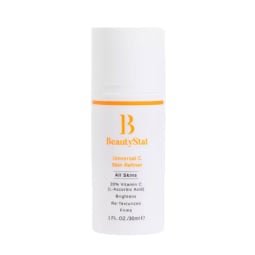
Pros
- Also contains squalane for moisture and a green tea extract to reduce inflammation
Cons
- Some folks are sensitive to high concentrations of vitamin C — do a patch test first
Considerations:
Cruelty-freeFragrance-freeIngredient highlights:
Vitamin CSqualaneGreen tea extractA powerhouse product, this vitamin C serum contains a staggering 20% of the antioxidant. It uses a patented encapsulated form of L-ascorbic acid that’s released only when in the skin. This means that the formula is highly stable throughout its use. And I should note that vitamin C is not only great at brightening the skin and reducing free radical damage, but it’s used in the collagen synthesis process—meaning this serum can also help with skin firmness and fine lines.
Advertisement
Best niacinamide: FAB Facial Radiance Niacinamide Dark Spot Serum
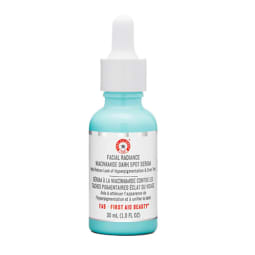
Pros
- Also contains licorice root and golden kiwifruit, which is high in vitamin C
Cons
- When used in excess, niacinamide can cause flushing. Be aware if you’re using it elsewhere in your routine.
Considerations:
Cruelty-freeVeganFragrance-freeIngredient highlights:
Licorice rootNiacinamideVitamin CNiacinamide is featured quite a bit on this list for a reason: the B vitamin is an excellent dark spot corrector. Research indicates that niacinamide inhibits melanosome transfer, resulting in brighter skin and reduced appearance of dark spots. It also has hydrating properties, supports the skin barrier, and acts as an antioxidant.
Pros
- Formulated by top derm & mbg collective member Whitney Bowe, M.D.
Cons
- Only a nighttime treatment
Considerations:
Cruelty-freeVeganFragrance-freeIngredient highlights:
PeptidesRetinaldehydeThere is a reason that retinol is loved by skin care pros, beauty editors, and dermatologists: It does just about everything. The ingredient upregulates collagen production, helps manage acne, and increases skin cell turnover. The last point makes it excellent at helping get rid of dark spots. This serum actually uses retinal (clock the “A” there), which is the most potent form of vitamin A you can get your hands on without a prescription.
What our reviewer says:
There’s no one I trust more than top derm & mbg collective member Whitney Bowe, M.D. And this serum only further confirms she knows how to make a good product. This installment of Bowe’s skin cycling routine is the holy grail of vitamin A products. But if all this talk of high-powered ingredients is scaring you off, please note that I have very sensitive skin and can still tolerate it a few times a week.
Pros
- Clinical tests indicate it works in as quickly as 2 weeks
Cons
- Not vegan or cruelty free
- Contains undisclosed fragrance
Considerations:
Cruelty-freeVeganIngredient highlights:
NiacinamideFerulic acidAmino sulfonic acidUsing 7% niacinamide, alongside ferulic acid and amino sulfonic acid, this lightweight serum targets pigmentation concerns with aplomb. Instantly your skin will look brighter (it has a slight pearlescent finish), while the ingredients get to work to clear up dark spots.
Pros
- Not only fades dark spots, but “intercepts” their development for years to come thanks to the special peptides
Cons
- Very expensive
Considerations:
Cruelty-freeVeganFragrance-freeIngredient highlights:
NiacinamideVitamin CPeptides4-ButylresorcinolOurself is, ahem, an investment—but it’s a brand that is creating some of the most innovative formulas around. The biotech company uses special delivery systems, peptides, and brand new ingredients to radically transform the skin. In the case of this dark spot serum, it uses several new-to-market peptides, a stabilized vitamin C, niacinamide, and 4-Butylresorcinol. The new-ish ingredient, 4-Butylresorcinol, is one of the most effective dark spot correcting ingredients that rebalances melanin production to improve the appearance of hyperpigmentation.
Ingredients that help treat dark spots
The above products all contain ingredients that help ease the appearance of dark spots. Dark spot ingredients tend to work one of three ways: The first, by inhibiting the overproduction of pigment by circumventing the melanin production pathways (or targeting dark spots at the source). The second is through exfoliation and skin cell turnover, thereby speeding up the fading process. The final way is by addressing environmental damage and inflammation, which can trigger pigmentation issues.
Here, what to look for on the ingredient list:
- Kojic acid: Kojic acid inhibits tyrosinase, the enzyme responsible for the overproduction of pigment. Research notes that the ingredient has the ability to brighten skin and fade dark spots2.
- Licorice root: This natural ingredient helps limit melanin overproduction3, resulting in a more even complexion.
- Niacinamide: Along with being an antioxidant, it can help with hyperpigmentation. As this study demonstrates, niacinamide inhibits melanosome transfer4, resulting in brighter skin and reduced appearance of dark spots after four weeks of consistent use.
- AHAs & BHAs: Alpha-hydroxy acids—like lactic acid, glycolic acid, and mandelic acid—and beta-hydroxy acids—such as salicylic acid—help lighten dark spots by simply exfoliating the skin. They can also help treat acne, which will mean fewer acne scars in the future.
- Retinol: The star ingredient encourages skin cell turnover5, which will help fade surface-level pigmentation a lot faster. It's also highly effective at treating acne6, which can help stop post-inflammatory hyperpigmentation from forming in the first place. Here, the very best clean retinol serums to shop—and how exactly you should use retinols in your routine.
- Vitamin C: A beauty expert favorite, vitamin C is great for a variety of concerns including dark spots. Research shows7 that it can help lighten dark spots caused by sun exposure, as well as reduce oxidative stress (a trigger for pigmentation issues).
- Antioxidants: Many of the ingredients on this list have antioxidant properties, but they're not the only ones. Antioxidants neutralize free radicals, thereby stopping the cause of dark spots in the first place. Check out our favorite serums here.
- Aloe: The multitasking natural wonder contains something called aloesin. In one study, when aloe was applied to skin four times per day for two weeks, aloesin was shown to effectively fade post-acne hyperpigmentation8. Another report showed that when applied topically, it can directly inhibit hyperpigmented skin from producing more melanin.
- Arbutin (or alpha arbutin): This is a natural version of hydroquinone, without all the side effects. Research indicates that it's able to lighten hyperpigmentation9 by acting as a tyrosinase inhibitor.
FAQ
How can I remove dark spots on my face fast naturally?
There are many natural ingredients that can help even out skin tone, fade dark spots, and deal with pigmentation concerns, including:
—Aloe vera
—Arbutin
—Vitamin C
—Willow bark (a natural salicylic acid)
—Lactic acid
—Licorice root
What do dermatologists recommend for dark spots?
Dermatologists' go-to ingredients for dark spots are retinol, vitamin C, niacinamide, arbutin, tyrosine inhibitors (such as licorice root and kojic acid), and chemical exfoliants such as glycolic acid. Dermatologists may also recommend hydroquinone, but this must be used under the supervision of a professional. It is possible for users to develop rebound hyperpigmentation (called exogenous ochronosis) from continuous use of hydroquinone without taking a break.
Which product is best to remove dark spots?
While each of the above product is helpful at reducing dark spots, a few of the top rated are:
The takeaway
Dark spots are one of those skin conditions that can affect almost anyone—no matter your skin type, age, gender, and so on. If you happen to be one of the people who are dealing with the (very common) concern, look for products that use brightening ingredients such as antioxidants, exfoliants, retinols, and tyrosine inhibitors.
If you have broader aging skin concerns—like fine lines, sagging, and dullness—check out our favorite healthy aging serums.
Meet The Experts
9 Sources
- https://www.ncbi.nlm.nih.gov/pmc/articles/PMC6163216/
- https://www.ncbi.nlm.nih.gov/pmc/articles/PMC3468271/
- https://www.ncbi.nlm.nih.gov/pmc/articles/PMC3663177/
- https://pubmed.ncbi.nlm.nih.gov/12100180/
- https://www.ncbi.nlm.nih.gov/pmc/articles/PMC6791161/
- https://www.ncbi.nlm.nih.gov/pmc/articles/PMC5574737/
- https://pubmed.ncbi.nlm.nih.gov/10522500/
- https://www.ncbi.nlm.nih.gov/pmc/articles/PMC5843359/
- https://www.ncbi.nlm.nih.gov/pmc/articles/PMC8301119/
